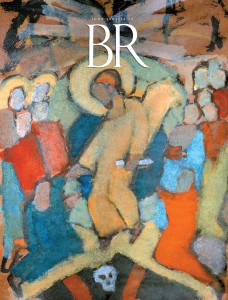Did the gospel writers whitewash the role of Pontius Pilate on Good Friday, portraying him as a magistrate who condemned Jesus only under pressure from a Jewish prosecution, when in fact Pilate really wanted Jesus on the cross? This revisionist portrait of Pilate—presented to BR readers by Professor Stephen J. Patterson in “The Dark Side of Pilate” (December 2003)—is becoming normative among many biblical scholars today. As seen through this nontraditional lens, the evangelists, motivated by the growing dispute between church and synagogue in the first century, magnified Jewish involvement at Jesus’ trial; the traditional role of Pilate, as reported in the Gospels, is simply propaganda then, not history.
I beg to differ.
To make his argument, Professor Patterson presents the usual negative evidence on Pilate from the writings of Philo and Josephus that apparently contrasts with the milder impressions in the New Testament. But while Patterson uses all his negative critical acumen on the Gospel of Mark as a historical source, he does not do the same for Philo, the first-century Jewish philosopher at Alexandria. Had he done so, he would have noted why Philo wrote as he did.
In his Embassy to Gaius, Philo describes how Pilate had erected, in Herod’s Jerusalem palace, several gold-plated shields bearing inscriptions supposedly offensive to Jews. The Jews threatened to send a delegation to Rome to complain. According to Philo, Pilate feared the delegation might also report on some of his other wrongs, including his “briberies,” “robberies,” “senseless injuries,” and “executions without trial.”1
Already a library member? Log in here.
Institution user? Log in with your IP address.

